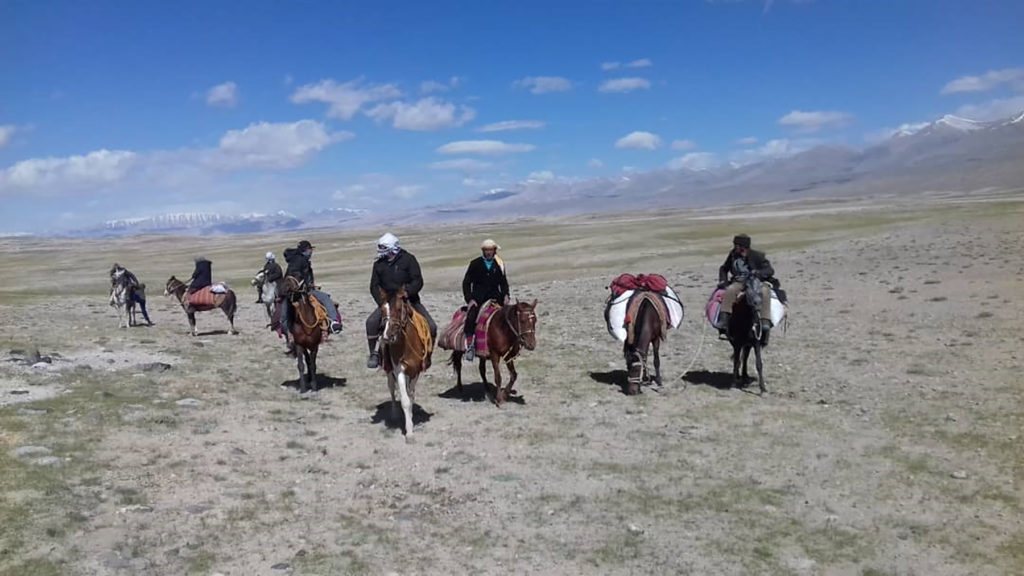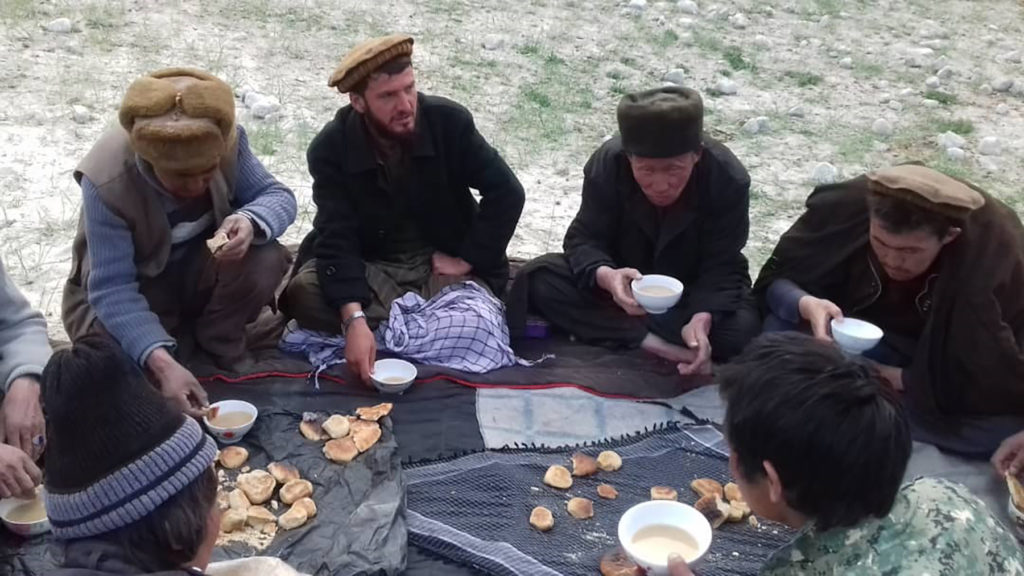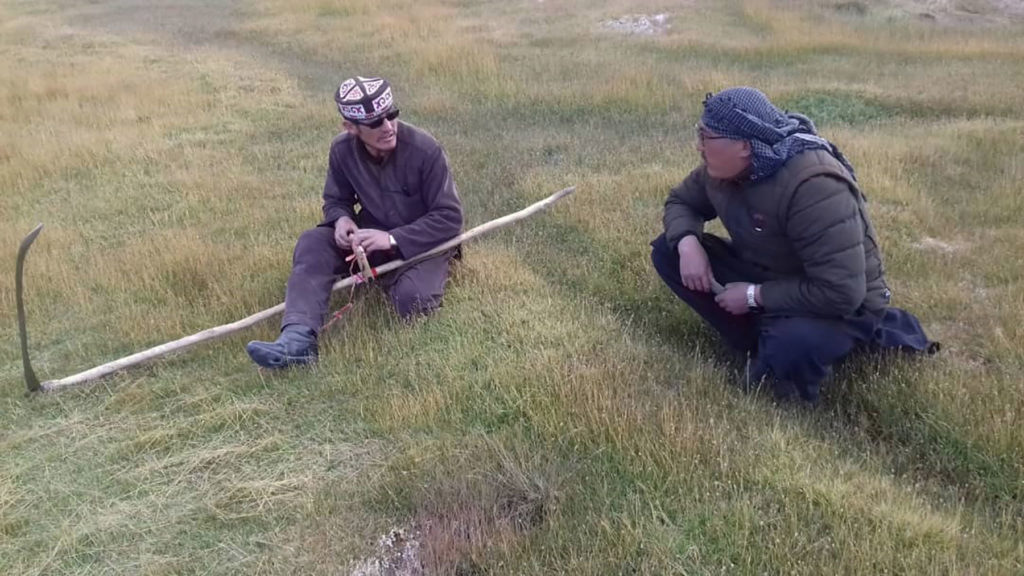Like other Afghans, the Kyrgyz community in the country, face a mix of advantages and challenges in their lives. On the positive side, this population of between 1,500 to 2,000 settled pastoralists in the Wakhan corridor have largely escaped the violence seen elsewhere. While they are Sunni Muslims, they have not experienced the discrimination faced by certain other minorities, due in large part to their geographic remoteness. The ‘corridor’ effectively separates Tajikistan, China and Pakistan and extends to the east of Badakhshan province between ranges of the Pamir mountains, whose peaks rise to 4,000 meters in an area known as ‘bam-e donya’ or the roof of the world. Here, the community has of necessity led a self-sufficient existence in distinctive yurts or round shelters made of felt stretched over a timber frame.
Their isolation however also has its disadvantages, for the Kyrgyz have long been denied many of the rights enjoyed by other Afghans, including basic public services. As access to the area has improved over the past two decades, trade has provided opportunities for the Kyrgyz community to have more sustained contact with others and with this to foster social and cultural ties.
“Afghanistan is our home now,” says Haji Jalal, 55, who had just returned from a 6 day journey to the provincial capital Faizabad to get medical treatment and trade foodstuff. “We have our grievances of course but this doesn’t make us any less Afghan. I believe that we have contributed to this country by making our homes in a rugged area where the Afghan government had limited access or interest. By inhabiting the border area, we feel that the Kyrgyz are guardians of the sovereignty of Afghanistan in these parts.”
The Kyrgyz have historically co-existed with their closest neighbors, Wakhi communities (of Ismaili Shia faith) who engage in agriculture, and with whom they engage in barter of livestock and agricultural products). “Wakhi Ismailis are our neighbors with whom we have lived in peace and partnership for almost a century.” Said Haji Jalal.
Rahman Qol is a 28-year-old Kyrgyz man whose grandparents settled in the area after fleeing their native homeland to escape persecution in the aftermath of the Bolshevik revolution in 1917. He is the first student from the Kyrgyz community to study medical science in one of the private universities in Faizabad. He also commends the Wakhi for the good relations with his Kyrgyz community. “I went to high school in Ishkashim (a district in Badakhshan whose population is predominantly Ismaili) and found them open-minded and welcoming towards me.”
Haji Jalal says that every year members of the Kyrgyz community travel out of the Wakhan, mainly for trade. “This has meant that our people engage more with other Afghans on a social level. Many of us have learned Farsi to enable us to communicate with those with whom we trade and interact.”
Rahman Qol elaborates on his experience of moving to study in Faizabad (which is mostly inhabited by Tajiks and Uzbeks) and other travel he has made to Kabul and elsewhere. “I’ve hardly encountered any discrimination. Mostly, people assume that I’m a Hazara, Uzbek or Turkman because of our facial similarities, but they are curious to know more about us when I explain that I am a Kyrgyz. Sometimes, I’ve been referred to as a kohi or a ‘mountain man’ (generally a term of ridicule) or even a khariji or foreigner, but I simply ignore this.”
Itinerant Pashtun communities continue to play an important role in the livelihoods of Kyrgyz people as they have through history. “They travel across the country and come to Pamir to exchange goods and buy our sheep. Through this, we have developed good relations and consider the Pashtuns as friends, as well as being honest and reliable business partners.” Said Haji Jalal.
As well as these relations, Kyrgyz oral traditions tell of a blood bond between them and the Hazaras. Haji Jalal explains: “There is a popular tale among our people that Hazaras are ‘bola‘ (cousins from the mothers’ side) of Kyrgyz people. Based on this story, the grandmothers of the two were blood sisters and we believe that this is true – therefore, we are always on good terms with our Hazara cousins.”
As with so much in Afghanistan, mutual reliance and respect is the foundation of good relations between different ethnic groups or communities.
















